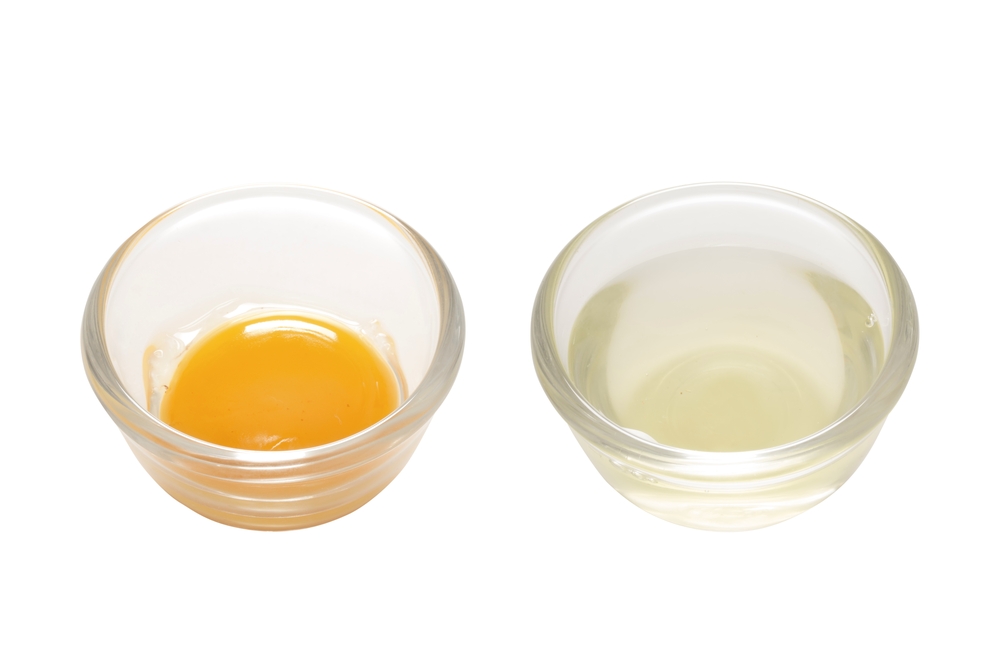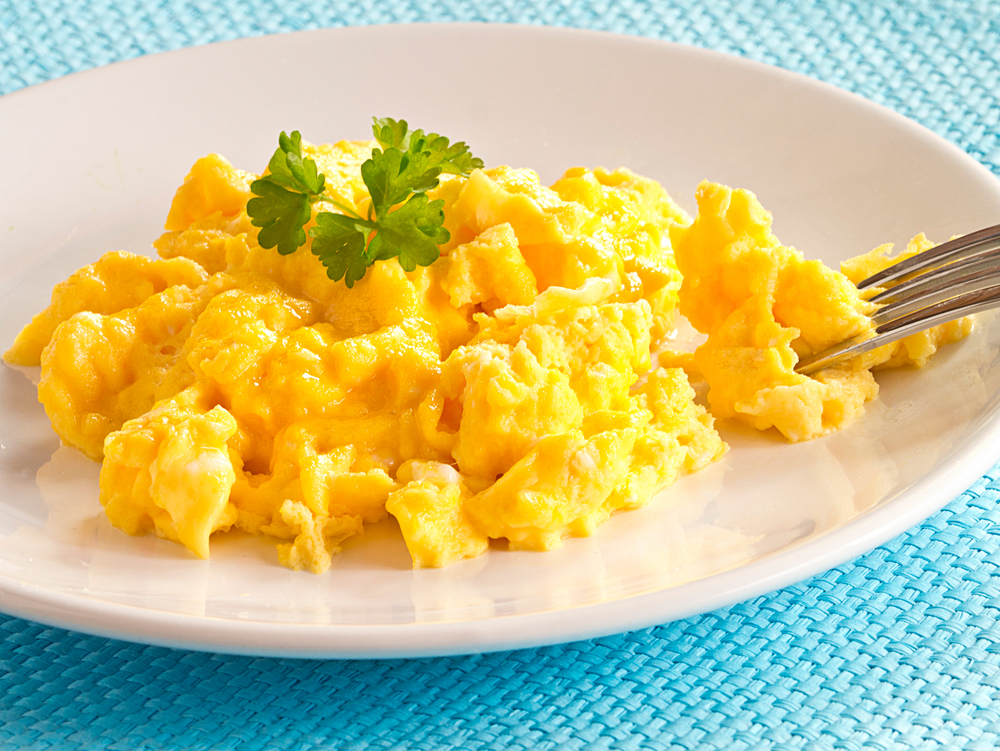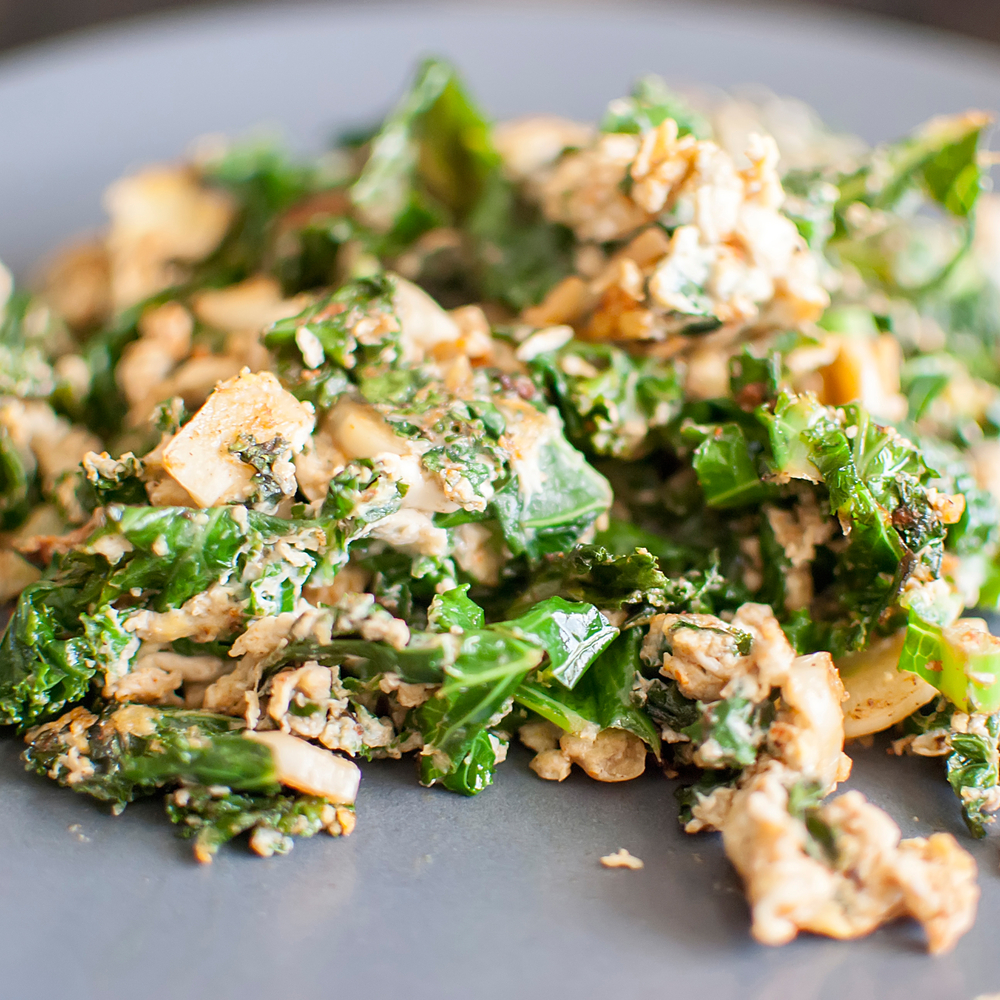I hope you’re having a wonderful week. I’ve traveled through Asia in the past, and wanted to take a moment to address a question I get a LOT about a certain type of protein:
Eggs!
I think that stems from the fact that even though they’re an animal product, they’re not technically meat; and they’re high in protein and often debated by health experts. Some claim eggs are high in cholesterol and bad for you, while others praise them as a superfood.
This article will offer a Beauty Detox perspective on eggs and what role you may (or may not) want them to have in you diet. So let’s get going…
Are Eggs Healthier Than Chicken and Other Meat?

As you probably know, I do not promote animal protein as a dietary staple (and personally do not eat it), though I recognize other experts may feel differently. Here in this post, I’m going to focus on my personal take on eggs, as well as that of some other experts and studies that I happen to agree with.
For example:
Dr. Furhman’s food pyramid puts them just barely under the tip-top where the beef, sweets, cheese, and processed foods are, and they share a section with poultry, oils, and dairy. His food pyramid takes micronutrients, macronutrients, and exposure to toxins into account.
Too Much of a “Good” Thing
Dr. John McDougall refers to eggs as “too much of a good thing.” You can sort of look at them the way we look at dairy. Milk is perfect—for baby cows. Eggs are perfect–for foxes, badgers and other small predators who rely on them as a source for food. Not for people. Eggs have plenty of fat, protein, and other nutrients — but that doesn’t mean they are optimal for our digestive systems.
In all likelihood, eggs are too much for the human body to handle on a regular basis. They’re too rich and not a good match for our needs. On his site, Dr. McDougall writes, “A whole egg is 32% protein and the white of an egg is essentially 100% protein. Infants, growing children, and adults need, at most, 5% of their calories from protein.”
Now, you may agree or disagree with that protein-as-a-percentage-of-calories number, but let me just say that this is NOT just about quantity or percentage of protein, but also in terms of quality — and what your body can actually digest.
In other words, the protein content of eggs has surely added to their popularity, but that’s far from the whole picture. We’re taught that protein is the way to gain lean muscle, lose weight, become stronger, and function better. And if you’ve heard the widespread fitness and muscle-building food regime, it usually involves egg whites, egg whites, egg whites! But in reality, too much protein (especially the wrong kinds of protein!) can damage your kidneys, put you at risk for heart disease, greatly increase the toxicity load in your body and speed up the rate at which you age (both internally and the way you look). More on this in a moment.
Now, I’m guessing you’ve been doing a good job of staying away from the high-protein marketing hype, refusing to purchase those crazy protein bars some trainers recommend eating after a workout, yet maybe you’ve still been liberally consuming eggs? If so, you may want to reconsider.
Let’s Compare the Egg White and Yolk
Not only is there a question about whether eggs are okay to eat at all, there’s a debate about whether the whites or yolks are better for you, and whether you should consume the yolks at all. I’m pretty sure there are whole books out there talking about it! The answer’s pretty simple, though…
Is white better? Is the yolk?
They both have their pros and cons.
Egg Whites
The white part, the albumin, isn’t where all the fat is (that’s almost all in the yolk), so that’s one point in its favor. However, when it’s heated (you’re not eating them completely raw, are you?), it becomes difficult to digest, almost like a glue.
Egg whites can actually be used in wallpaper glue, so you know they like to stick around! They also don’t really offer much in the way of nutrition. Just more protein than we really need, and not really even the type of protein we need.
Side note: Always stay away from the egg whites that come in the cartons. They’re easier to work with and arguably more convenient than whole eggs, but they’re horribly processed and sometimes have extra ingredients thrown in, like “natural flavor” (who knows what) and salt.
The Yolks
The yolks have some nutrients, but they’re also nearly all fat. Though some fat is good in your diet, there are better options out there, like nuts, seeds, and fatty fruits like the avocado. And chances are, if you’re routinely snacking on eggs or having them for breakfast, you’re getting too much fat in your diet. Most people don’t just eat one in a sitting, but instead put away two or three at a time.
Along with about five grams of fat in that little sphere, you get miniscule amounts of vitamins A, D, E, B6, B12, folate, calcium, iron, phosphorus, zinc, and copper. The yolk is pretty high in selenium (14 percent of the daily recommended value), but you can get selenium from mushrooms, asparagus, brown rice, spinach, cabbage, and other plant foods. The eggs aren’t necessary, from a nutritional perspective.
The truth is, eggs really just aren’t the “superfood” some nutritionists make them out to be. If you enjoy eating them, I won’t tell you that you have to stop and become a full vegetarian or vegan, but be mindful of what kind you get, when you eat them, and how much you eat (I’ll talk more about that soon).
A Comparison Between Eggs, Meat, and Smoking
Some people want to keep animal protein in their diet and think eggs are a much healthier option, so let’s compare those. Eggs have about 186 mg of cholesterol, and it’s all in the yolk. There are about 93 mg in half of a chicken breast and about 78 mg in a 3 oz broiled top sirloin steak.
A study in Atherosclerosis speaks to the damage the cholesterol in egg yolks can do in the body. This Canadian study compared the arterial damage related to consumption of eggs (with yolks) versus smoking cigarettes in a total of 1262 patients.
The amounts of plaque along the patients’ arteries who had high levels of egg yolk consumption (at least three egg yolks per week) were two-thirds that of the patients who had smoked at least 40 pack-years (pack-years are a measurement of how much a person has smoked. The formula is number of packs smoked per day x years as a smoker).
That suggests regular egg consumption isn’t that much healthier than smoking two packs of cigarettes per day for 20 years!
In addition to the cholesterol and its effects, we can take a look at the fat content in eggs vs. chicken and steak and see how easily they could clog the body, slow digestion, and lead to weight gain, accelerated aging in various ways and health issues:
The steak has 12 grams of fat (4.8 saturated), the chicken breast has 13 grams (3.9 grams saturated), and there are 5 grams of fat (1.6 grams saturated) in each large egg. Unless it’s a snack, most people who eat eggs will have at least two at a meal. That means they’re consuming at least 10 grams of fat and 3.2 grams of saturated fat. Not that much different from meat, right?
What About the Fat Content?
Some fat is healthy, yes, but the sources and amounts make a huge difference in how healthy that fat is for you.
From a digestion perspective, that fat’s going to digest sooo slowly. When digestion is super slow, it can cause congestion in the body. Nothing else can be digested effectively until that fat (or dense animal protein, and eggs have both) is processed by your system.
That means everything you throw down on top of those eggs could be just sitting there, waiting to be used by your body, but unable to pass through so their nutrients can be absorbed and waste eliminated.
When do most people eat their eggs? In the morning. A lot of people think their breakfast isn’t complete without a couple of eggs, and they’ll even add toast, jelly, bacon, and maybe even a slice of fruit on the side and then wonder why they’re exhausted just hours after waking up!
So any snacks, other meals, etc, that you eat for hours after your breakfast eggs have a chance of sitting there. Along with the traffic jam that could cause in your digestive system, that’s going to make you feel sluggish and heavy.
Ever wanted a mid-morning cup of coffee—or better yet, a nap—because you felt so annoyingly tired by 11 AM? Eating something like eggs—regardless of whether you want to keep them in your diet to some degree (always eat animal products and large amounts of fat at the end of the day, not the beginning, so it’s not as big of a deal if your energy levels are affected)—can contribute to that.
The Nutritional Benefits (or Not) of Eggs
Some people like to keep eggs in their diets because of their B12 and iron content. B12 can be a little more difficult to get on a vegan diet, but there are other sources besides eggs. You can get your B12 and iron without the high fat content and resulting sluggishness, no problem.
For B12, one of the best sources is nutritional yeast, which is easy to sprinkle on your salads or cooked veggies. Try my Dharma’s Kale Salad for starters. You can also get it in supplement form.
Iron’s everywhere in a whole foods based diet–especially in the leafy greens–but also in quinoa, brown rice, nuts, and seeds. So if you’re drinking your Glowing Green Smoothie, having a big salad at lunch, and making sure you get in some more vegetables (and maybe a little quinoa or rice) at dinner, you’re not going to need to have eggs in your diet just to have enough iron.
The Negative Health Effects of Eggs
Studies suggest that infrequent egg consumption is okay, but if you’re having more than one per day, you may be opening yourself up to the possibility of health issues.
A study in Circulation suggested a decrease in egg consumption due to a heightened risk of heart failure in people who had more than one egg per day.
Another study, this time in The Journal of the American Medical Association, also found risks associated with the consumption of more than one egg per day. In this case, there’s a higher risk for coronary heart disease in diabetics when they eat more than one egg per day.
So if you do want to have eggs, have no more than one per day. Keep in mind that the studies that say you’re less likely to experience serious health issues when you consume even this small amount of eggs only say that about people who are already healthy. If you have a heart condition, high cholesterol, or diabetes, the claims may not apply to you.
How and When to Eat Eggs if You DO Want to Have Them
As I mentioned above, you should always eat your eggs and any animal products at dinner, a few hours at least before bed. That way if they slow you down, the only thing you have to do is relax and unwind, allow some hours for digestion then go to bed. No appointments, meetings, or anything like that’s on the to-do list at that point (hopefully)….and no more other food coming immediately after that. Digestion slows during sleeping, but if you have the rest of the evening and into the next morning, that is the clearest path to digest it. Here are some tips:
- Never eat them with starches, another protein (sorry, no bacon!) or fruits because that will make everything harder to digest. You can have them with non-starchy vegetables, like greens (try adding some kale or spinach).
- If you like to eat eggs for dinner, don’t do it any more than three to four times per week. However, you shouldn’t have any animal products more than that many times per week, so if you have fish on two nights, only eat eggs one or two nights.
- Overcooking or “frying” your eggs will often denature the delicate proteins inside the eggs, making them even harder for your body to use/assimilate and more likely to create digestive issues.
- Soft cooking your eggs—like poaching—is a much better way than other methods, like boiling. They’re easier to digest this way.
If You Do Choose to Eat Eggs, Get Pasture-Raised
Don’t just go to the grocery store and pick up any old carton as long as the shells aren’t broken. If you’re going to eat eggs, buy the highest quality ones you can get your hands on, locally if possible (check out Local Harvest to find them). You want to look for organic eggs, which may be more nutritious than the alternative.
Also, try to find pasture-raised, but ask questions about them when you can since terms like “pasture” and “cage-free” tend to get tossed around and used much more carelessly than they really should. The chickens may have very limited access to the great outdoors in reality and the terms may need nothing.
The best thing to do is to avoid eggs from factory hens at all costs, and to source from a local farmer or farmer’s market if you choose to keep some eggs in your diet. That way you can know where they come from and ask questions.
TakePart.com has a good infographic that shows you what each one of the labels really means.
Limit Your Egg Consumption for Optimal Health
As I said earlier, and as I always say, I won’t tell you that you can never have animal products (aside from dairy). I realize that eggs are one of America’s most popular comfort foods and a breakfast institution, making them hard for many to fully give up. And that’s okay.
Overall, this post reflects my perspective on eggs as they relate to Beauty Detox principles — and there are widely varying views on the healthfulness of eggs.
Whatever your viewpoint, the last thing I’ll say is that if you’re having two, four, or even more eggs per day, you may want to consider switching them out for something else—plant-based–at least a few times per week, and then see how you feel.
As previously mentioned, I personally do not eat eggs as I do not think they are necessary, but you of course need to choose what’s right for you and your body. I have some clients that like to keep some in their diet, a few times a week. The rest of their diet is very clean and easy to digest, and what they are doing works for them and it works for me. It’s never all or nothing in my book (literally! :)- except for dairy of course, that is black and white as far as giving it up. Lightly cooked, pasture and ideally local-raised eggs probably give you the best nutritional bang for your buck, should you choose to consume them.
As with all things, when you listen closely to your body, it will tell you everything you need to know.
Thank you so much for reading this — and please let me know if you have any thoughts or questions in the comments below and I’ll do my best to answer them.
Have a great rest of the week!
With Love,
Kimberly







I was vegan for about 20 years and now eat meat, eggs, chicken and fish, and have never been healthier. When I eat eggs (about twice a week) I feel grounded, balanced, and energized. Most of the week I eat vegetables and grains, but I’m always amazed how grounded I feel when I eat eggs, meat, chicken and fish (in moderation). Even though I’m older than when I was vegan, people tell me I look much healthier and alive. So I appreciate the breakdown of the pros and cons of eating eggs, but I know my body feels great when I do.
Thank you for your post! I used to eat 2 (full) eggs every day for breakfast. I’ve recently switched up my eating routine, and I wondered if I was missing out on important benefits of eggs. It turns out I’m not! Along with the change has come less caffeine, which was tough, but I’m getting used to it and feel better than ever. Looking back, I wonder if the eggs were causing me to be sluggish and that’s why I guzzled coffee everyday. Thanks, again!
My father once told me : ” A single egg has everything you need for life. How can an egg ( both yolk and white) be bad for you if it contains everything essential to make a life, a.k.a a chicken?” I agree with and follow many of Kimberly’s thoughts and suggestions. The greatest thing about Kimberly is that she always tries to give you both sides of the story and sincerely understands that not everyone has the time, money or want to lead the lifestyle that she follows. This ability to relate to others only makes her more lovable. Although when it comes to eggs, I have my own strong opinion yet still appreciate a different point of view.
I love eggs. Raw, unheated, uncooked organic eggs from a clean source are an excellent health tonic.
Average Chinese person (except poor) eat more than 6 eggs per day and body builder in india eats 15 or 30 per day I don’t any bad effects u mentioned above
WOW … very interesting article, i never imagined that the eggs are beneficial to increase health. I know during the eggs can increase cholesterol in the blood, so we stopped eating eggs. But today we will continue to consume the eggs. Thanks for the information
Thanks for the advice.When I consume eggs my digestive system slows down.And I feel sluggish and have heartburn.Now I know why.I am cutting down a lot.
Thanks so much Roslyn, and great to hear you have narrowed down what’s causing your digestive issues. Keep up the great work in finding healthy options for your overall wellness. Lots of love to you! ;)